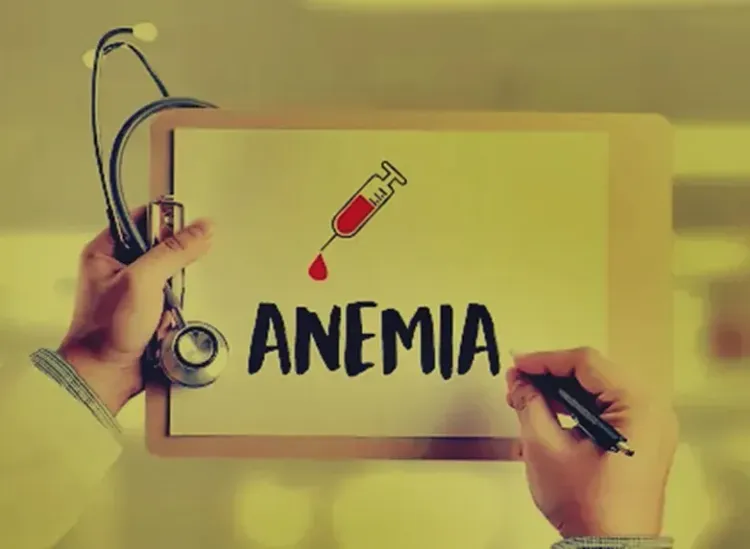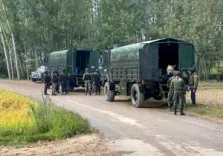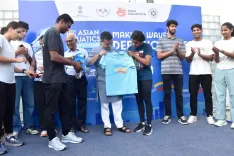How is Haryana Tackling Malnutrition and Anaemia?

Synopsis
Key Takeaways
- Haryana's task force is focused on eliminating malnutrition and anaemia.
- It includes representatives from various government departments.
- Community engagement is a core aspect, with sub-committees formed.
- Nutrition gardens will be established to enhance dietary diversity.
- Integration of technology aims to improve transparency in assistance distribution.
Chandigarh, May 4 (NationPress) - The Haryana government has established a dedicated state task force aimed at overseeing and coordinating initiatives to eradicate malnutrition and anaemia among women and children. This decision was made during the sixth session of the State Convergence Committee under Haryana's POSHAN Abhiyaan, led by Chief Secretary Anurag Rastogi.
The newly formed task force includes members from the Health, AYUSH, Education, and Women and Child Development Departments. It will be chaired by the Additional Chief Secretary for Women and Child Development and convene biweekly to ensure the effective execution and evaluation of the program.
Following the meeting, Additional Chief Secretary for Women and Child Development and Health and Family Welfare, Sudhir Rajpal, emphasized that the Poshan Abhiyaan is being rolled out with a strong emphasis on on-ground monitoring. This initiative includes the formation of Poshan Panchayats at the village level, with sub-committees made up of 10-15 women set to meet monthly. These committees will oversee the Integrated Child Development Services (ICDS), conduct social audits of food quality, perform spot checks at anganwadi centres, and engage in local health programs.
As part of the National Suposhit Panchayat Abhiyan, gram panchayats will be motivated to collaborate in diminishing malnutrition rates. Plans are underway for the establishment of Poshan Vatikas (nutrition gardens) in Anganwadi centres, schools, panchayat lands, and community spaces to enhance dietary diversity.
The Horticulture and AYUSH Departments will supply plants, seeds, including medicinal varieties, and provide technical support. Additionally, the Horticulture Department will plant fruit-bearing trees along roadways.
Under the Jal Shakti Abhiyaan, the Public Health Engineering Department aims to deliver universal water access to all anganwadi centres. Rajpal encouraged panchayats to actively assist in the upkeep and minor repairs of these facilities.
Officials from the Panchayati Raj Department confirmed that each panchayat will allocate up to Rs 25,000 for the repair of anganwadi centres. To enhance transparency and efficiency in ration distribution, the Poshan Tracker App has been integrated with a facial recognition system, ensuring that only legitimate beneficiaries receive assistance.
The Mukhyamantri Dudh Uphaar Yojana has also been bolstered with the introduction of an online Management Information System (MIS) to monitor the supply and demand for fortified milk intended for children and pregnant or lactating women.
Furthermore, the Food and Supplies Department has been tasked with investigating the possibility of mandating the fortification of rice, wheat, and mustard oil sold within the state, as an additional measure to combat nutritional deficiencies.
A Comprehensive Convergence Action Plan for 2025-26 has been submitted to the Ministry of Women and Child Development, outlining inter-departmental strategies to meet targeted nutrition objectives.
Rajpal highlighted that the efforts under the Poshan Abhiyaan have already shown significant progress, with the incidence of underweight children decreasing from 29.4% to 21.5%, and stunting dropping from 34% to 27.5%.







